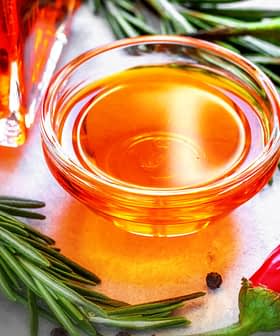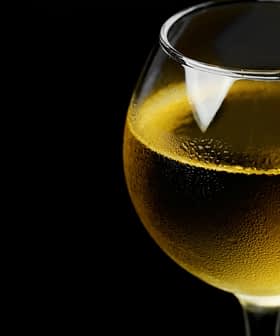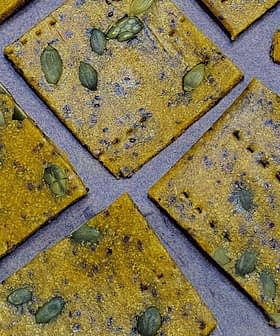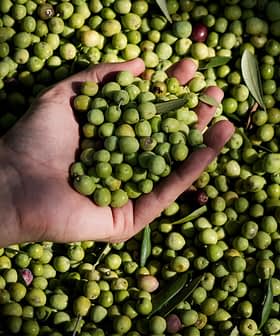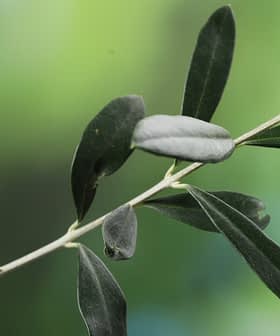 7.0K reads
7.0K readsHealth
High-Phenolic Extra Virgin Olive Oil May Improve Prognosis of Some Leukemia Patients, Research Suggests
Consuming high-phenolic extra virgin olive oil, specifically with high concentrations of oleocanthal and oleacein, may help delay the progression of chronic lymphocytic leukemia, according to a study of 20 patients in Greece. The compounds in the olive oil reduced white blood cell production in leukemia patients by promoting apoptosis, and researchers are planning a larger study to confirm these findings and potentially develop a drug for leukemia patients.
Consuming high-phenolic extra virgin olive oil may help to delay the progression of one of the world’s most common types of cancers, a small study of 20 patients in Greece suggests.
It was a very small number of patients, but even in that small number, there was a statistically significant difference after three months of intervention.
Researchers from the World Olive Center for Health, a non-profit based in Athens, found that consuming olive oil with high concentrations of oleocanthal and oleacein improved the prognosis of a sample of patients with early-stage chronic lymphocytic leukemia which makes up about 25 percent of global leukemia cases.
Leukemia is a type of blood cancer that begins in the bone marrow and causes the body to produce too many white blood cells that do not function properly.
In a healthy person, white blood cells help the body fight bacterial and viral infections. However, in leukemia patients, the dysfunctional white blood cells build up, diluting the effectiveness of functional ones and interfering with the production of red blood cells.
See Also:Health NewsAn estimated 23,000 people die from leukemia each year, representing four percent of global cancer deaths.
For the study, the researchers divided 20 patients from Greece at the beginning stages of the disease into two groups. The first group consumed 40 milliliters of monovarietal Lianolia extra virgin olive oil daily for three months, which included 25 milligrams of oleocanthal and oleacein.
The second group consumed extra virgin olive oil high in polyphenols, but with low concentrations of oleocanthal and oleacein for the same period.
After a washout period, the researchers performed a second trial, including eight people from each group and six new participants who consumed 40 milliliters of the extra virgin olive oil high in oleocanthal and oleacein.
By the end of the study, the researchers observed that white blood cell production had slowed down in the patients consuming high-oleocanthal, high-oleacein olive oil and, in some cases, even reversed.
“It not only stopped the increase [of white blood cells], but we observed a significant reduction of white blood cells,” Prokopios Magiatis, an associate professor at the University of Athens’ department of pharmacognosy and natural products chemistry and co-author of the study, told Olive Oil Times.
“Consuming high-oleocanthal, high-oleacein extra virgin olive oil could become a dietary standard for leukemia patients,” he added. “Already there are guidelines for patients that suffer from this type of leukemia. This could be one very significant addition to the guidelines.”
The inspiration for the study came from a phone call that Magiatis received in 2015. He said an American woman with leukemia asked whether she should add extra virgin olive oil to her diet to help with her prognosis. Magiatis told her it could not hurt.
“She called us six months later crying, saying that it’s a miracle because the white blood cell count has gone down,” Magiatis said. “We thought, this is a very good starting point. We have to try and repeat this in a clinical trial.”
The research team decided to investigate the role of oleocanthal and oleacein because previous studies found leukemia cells to be particularly sensitive to both compounds.
See Also:Oleocanthal-Based Treatment Shows Promise Against Aggressive Type of Breast CancerHowever, there was no evidence that these compounds would have the same effects on cells if consumed naturally and not introduced in laboratory conditions.
“Through dietary consumption, the phenolic compounds of olive oil must follow a very complicated pathway from our mouth to our stomach, absorption in the intestine, transportation in the blood and circulation all around the body,” Magiatis said.
“It’s a very complex procedure,” he added. “The fact that we are able to observe clinical effects means that these compounds can successfully follow all these pathways and reach their target in the blood.”
Oleocanthal and oleacein reduce the production of white blood cells in leukemic cells by promoting apoptosis, an organized mechanism of cellular death that can kill cancer cells. The two compounds did this by decreasing the survivin protein, which inhibits apoptosis.
“When we have a reduction of the anti-apoptotic proteins, it means that the apoptotic mechanism is activated,” Magiatis said. “This is how we can explain why cancer cells are dying faster than they are multiplying in the blood.”
Along with reducing the number of cancerous white blood cells, Magiatis said patients consuming extra virgin olive oil had the added benefit of better blood sugar regulation.
“We also observed benefits in the glucose metabolism, which is very important because blood sugar is dysregulated in all leukemia patients,” he said. “Almost all the patients with chronic lymphocytic leukemia suffer from increased glucose levels in their blood.”
“We observed that their blood sugar levels returned to normal values after three and six months,” Magiatis added.
While these preliminary results are encouraging, Magiatis cautioned that further studies are needed to confirm the initial findings and better understand why oleocanthal and oleacein have these effects.
See Also:Oleocanthal Regulates Abnormalities in Receptor Responsible for Alzheimer’s“It was a very small number of patients, but even in that small number, there was a statistically significant difference after three months of intervention,” Magiatis said. “So we concluded that this is very critical. We have to continue for a longer period with a larger number of patients only with a high-oleocanthal and high-oleacein olive oil.”
Magiatis and the other researchers are already working on a new study, which will follow at least 100 patients for a year.
The objective of the new research would be to see if consuming high-oleocanthal, high-oleacein extra virgin olive oil would continue to lower white blood cell counts over a more extended period.
Magiatis is optimistic that this will be the case based on anecdotal evidence. Two participants in the original study continued consuming the high-oleocanthal, high-oleacein extra virgin olive oil for two years and saw their white blood cell counts continue to drop.
If the more extensive studies confirmed these previous results, the researchers might investigate the possibility of isolating the two compounds to create a drug for leukemia patients. However, Magiatis cautioned that these studies would take years to complete.
In the meantime, he sees these preliminary results as solid evidence that the consumption of extra virgin olive oil high in oleocanthal and oleacein is a low-risk intervention for chronic lymphocytic leukemia patients.
“In any case, the addition of olive oil in the diet of any patient is something that does not create any risk to their health,” he concluded. “The only things that they can get is a benefit. There is no risk ever observed by the consumption of olive oil in the everyday diet of any person.”




